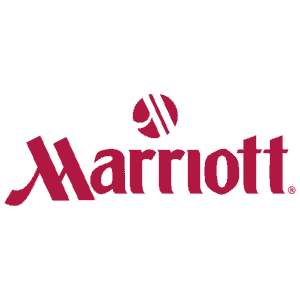
Content marketing is a form of digital marketing that uses content to attract, engage, and convert an audience to achieve business goals. It involves researching, planning, creating, promoting, and measuring content through various channels, like websites, email, social media, video, audio, and more.
Frequently intertwined with SEO, content marketing revolves around a strategic, data-backed, engaging content experience along the customer journey in order to drive growth, generate revenue, and improve other metrics.
By providing valuable content, businesses build better customer relationships, create a positive brand image, and incentivize loyalty to their products and services.

Philadelphia: The Birthplace of Content Marketing
While content marketing is now a primarily digital tactic, the roots of it have been around for over two hundred years. Marketing scholars debate its inception, but some believe that it all started with a man of many firsts, Benjamin Franklin, who used his Poor Richard’s Almanack as a way to promote his printing business. His customers received value from the almanac and he showed off his product through it.
Early Content Marketing
One of the most definitive examples of content marketing came in the 19th century when John Deere released a magazine called The Furrow as a resource for customers, guiding them through purchasing and using John Deere products while building a brand relationship. The technology has changed, but content marketing remains a powerful tool to reach customers, boost loyalty, and drive sales. As long as there are customers seeking products and information, there is a need for content marketing.
The Current State of Content Marketing & SEO
The evolution of content marketing is most evident in SEO. Leading SEO strategies have shifted to a content marketing approach. Experts understand that by providing what searchers want, they can stand out in a sea of results and be credited for the information. SEO data also serves as an honest audience insight and shows what they actively look for, providing clear customer behavior that can be used across marketing strategies. Even as the search engine and AI landscape changes, the need for hyper-targeted insights about consumer behavior will not diminish. Thus, content marketing and SEO remain critical.
Content marketing is a fast-moving industry that has seen explosive growth and marketer interest over the last few years:
64%
of the most successful B2B marketers have a documented content marketing strategy (Content Marketing Institute).
67%
67% of marketers report that content marketing generates demand and 72% of marketers say that content marketing helps to educate their audience (Content Marketing Institute).
3x
Content marketing generates over 3x as many leads as outbound marketing and costs 62% less (Demand Metric).
78%
of CMOs see custom content as the future of marketing and 82% of consumers feel more positive about a company after reading custom content (Demand Metric).
68%
of online experiences begin with a search engine (Brightedge).
B2B
companies generate 2x more revenue from organic search than any other channel (Brightedge).
Your customers use different channels for different reasons. Your content marketing strategy is no different. Find out about you can use and why they are important.
Website Content
Website content consists of general web content, blogs, articles, narrative storytelling, landing pages, sponsored content, and more. A website acts as a centralized content hub and ensures foundational messages are well represented. Publishing blogs, eBooks, case studies, whitepapers, and other web content demonstrates expertise and provides real value. By using a website for content marketing, brands establish themselves as thought leaders, increase visibility, and drive business growth.
Email Content
Email is an effective content marketing channel that allows consistent connection on a personal level. Automation is a key component of email content marketing and allows brands and businesses to set up ways to address customer relationship management and personalized marketing campaigns. Email content marketing campaigns can promote products and services, offer deals and promotions, deliver newsletters, educational materials, and increase engagement and brand loyalty.
Social Media Content
Organic social media content marketing allows brands to connect with their audience on popular platforms by creating and sharing valuable content. Social media fosters community, education, and information sharing among brand aficionados and beginners alike. By publishing relevant content, businesses can shape their brand, interest and entice their customers, and drive conversions and sales. Organic social media is a content marketing tactic that is separate from paid social media. Paid social media is typically an outbound, digital advertising tactic, but can still use organic insights.
While content marketing is primarily a digital marketing tactic, there are use cases for content in physical and traditional media. Print publications and magazines use content similar to websites or online brand publishing to inform, educate, and interest readers through compelling stories.
Sponsored content has its roots in magazines and brand partnerships. There is also content marketing specifically designed for conferences, events, or speaking engagements that can be utilized in a digital or traditional capacity.

Content marketing offers value in many different ways. Read through 10 key benefits of a content marketing strategy and think about how to apply them to your business.
SEO
Simply put, SEO does not work without content marketing. Optimized content increases visibility, credibility and generates website traffic. Good content is the most important part of SEO and will improve search engine results as well as the experience users have on the website.
Branding
Content marketing is a tried and true method to increase brand awareness and brand loyalty. It helps the audience understand who and what your brand really is through strategic, targeted, consistent, and personalized content marketing, allowing you to own your brand conversation.
Customer Engagement
Building a relationship with the customer through consistent content boosts engagement, loyalty, and trust. Content is one of the ways to engage an audience in measured, consistent way over time with room for ongoing optimizations.
Improved Journey Mapping
Through the process of planning and creating content for each phase of the customer’s journey, you can ensure each phase of it is accounted for in the marketing budget. Measure results and take those learning from content to other aspects of your business that use journeys.
Lead Generation
Content brings in, nurtures, and qualifies leads through offering solutions and helpful advice, establishing a relationship with prospects and potential customers in the process. Optimized CTAs and A/B tests in content marketing can improve lead data collection as well.
First-Party Data
Since so much of content marketing data is tracked through opt-ins, actions, and information provided directly from your audience, it has a leg up on first-party data collection. Use insights to optimize content and apply them to other areas of your product, services, and marketing.
Thought Leadership
In today’s hyper-competitive digital landscape, customers look to true thought leaders and domain experts to cut through the noise. Content can show expertise and establish a following. Don’t just tell your customers, show them your authoritative knowledge.
Full-Funnel Strategies
While some digital marketing tactics may only fit in parts, content marketing can be used across all areas of the funnel. Brands create content for each specific part of the funnel to ensure prospective customers and stakeholders find value throughout the entire process.
Lower Cost
Content marketing costs less than other digital advertising. Since content only requires upfront cost, the opportunity for ROI and explosive growth is more likely than with paid media. Content marketing is an affordable and effective tactic, especially if you have more time than budget.
Earned, Organic Results
Content marketing results can be exponential and build on themselves due to the organic and earned nature of successful content marketing. It works because it resonates with your customers. When SEO and content marketing succeeds, it is due to inbound leads and earned results.
With the rise in popularity of content marketing and AI models, it may feel like competition is higher than ever. While that is true in a sense, it also creates an environment ripe for disruption. Customers need quality, audience-centric, understandable, not overwhelming, information. With so much content out there, brands can no longer differentiate just by creating content.
In order to stand out from the rest of the content landscape, brands must think of ways to apply user data in a unique, measurable, optimizable way. Great content marketing strategy is the clearest differentiator left. Speed of content creation and sheer amount of content created will no longer cut it.
Let other marketers churn out mediocre information and instead focus on discovering a clear, understandable picture of your audience and creative, innovative, ways to reach them through content marketing services.
Measurement is an important benefit of content marketing. It provides insights into the effectiveness of content marketing efforts and enables brands to optimize their strategy in real time. While all marketing can be measured in some way, content marketing metrics can be finely traced against specific KPIs and tweaked as needed to ensure efforts are driving growth and delivering value. Measurement and KPIs can be tracked through website analytics, SEO, surveys, quizzes tests, social media engagement, and user testing.
(Some) Content Marketing KPIs
Brands can measure and optimize for many other KPIs through content marketing. It’s best to work with an expert to determine which KPIs to start with and how to grow from there.
How to Test and Optimize Content
Some of the most common ways to analyze content are through a/b testing, heat maps, website analytics, surveys, keyword research, and social media metrics. It is critical to clearly define and set up goals ahead of any campaigns to ensure the metrics being measured are correct and the content is tested accordingly. This is also why a defined content strategy is important, because it provides a source of truth for campaign success.
How to Reach Your Goals With Content Marketing
Content marketing can fit naturally within an existing goal framework or it can be used to set up new, specific goals directly related to content marketing efforts. These 6 common content marketing goals will help you better understand how to approach applying content to business goals.
6 Common Content Marketing Goals
1.
Increasing website traffic
2.
Generating leads
3.
Building brand awareness
4.
Increasing engagement
5.
Increasing conversions
6.
Improving customer retention
Content Marketing
Process Best Practices:
Content Creation
Best Practices
2 Ways Big Brands Used Content Marketing

Marriott International’s Content Publisher Approach
While Marriott has operated in one way or another for nearly 100 years, their focus on content marketing through brand publishing started back in 2015 with their digital magazine Marriott Bonvoy Travelers. Marriott creates high quality content through Marriott Bonvoy Traveler, acting like a traditional digital media publisher or magazine.
By creating and sharing content that appeals to their target audience’s interest, they build their online following and brand, providing enjoyable and tangible stories to delight their customers. Marketing teams can function as their own publishing house and produce the same level of thought provoking, interesting stories as you might find in legacy magazines or digital publications.

How HubSpot Grew Organically and Exponentially Through Content Marketing
Nowadays, HubSpot is practically synonymous with content marketing and inbound marketing. But when they first launched, they faced the same issues countless other startups and small businesses face. They had to learn how to grow with what they had on hand. HubSpot focused on creating valuable content that helped their audience, usually small and medium-sized businesses, solve marketing challenges.
They created a blog with quality tips and insights on inbound marketing, offered free tools and templates, and published many eBooks, whitepapers, and case studies showing their value. They also pioneered the online academy model and even today continue to focus on providing earned, organic value. Their engaged, passionate audience is a testament to the power of great content marketing.
Now that you’ve seen how brands use content marketing successfully, find out how to apply content marketing to your business.
